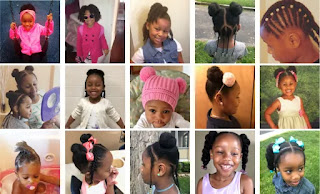What can we do to make children feel better?
Nothing touches the heart of a parent or teacher more than "No one likes me" or "I have no friends." We wish we could do something to ensure the child, not the most well-known, is essentially remembered for the jungle gym games. In fact, there are things we can do to increase their acceptance by the group and make them more accessible to others.
New research shows that all picky babies behave in certain ways. These skills are not innate but can be taught by parents, teachers, and other caring adults. There is a language that some children may not pick up by osmosis but must learn. It has been called a "shorthand" for making friends. More than just being among friends and feeling good, it has many other benefits, including better grades, a healthier body, less stress, and more opportunities to learn social skills. Children who feel they have friends stay in school longer, make wiser decisions and are generally happier.
Parents, teachers, and other caring adults: Here are 7 secrets to helping your child become more likable. Teach and model them on a daily basis and you'll see your social circle grow.
%%%%%%%%%%%%%%%%%%%%%%%%%%%%
YOU MAY LAIK THIS
Best Way To Overcome Insomnia
Look for opportunities to help others. Studies show that helpfulness correlates more strongly than other traits with likability. Teach them to be aware of other people's needs and to offer help spontaneously before they ask for it.
Find something that makes you feel special and urge your kid to track down an action, leisure activity, or interest that they truly appreciate. They don't need to succeed at it, simply appreciate it. Do you enjoy drama, dance, or railroading? Join a group of enthusiasts.
Say "hello" first and smile. People who smile are considered nice and approachable. Friendly and optimistic people act as magnets to others. Have you ever been mad at someone who smiled at you or said hi?
Don't stand out from the crowd. Whether we like it or not, kids are judged by their looks. Attempt to assist them with fitting in socially.
Don't take it personally. Help your child understand that someone else can have a bad day and not be mad or dislike them. Teach them that people care less about us than we think.
Watch your body language. Verbal communication is the language of information. Body language is the language of relationships open, well-disposed, and anxious to participate and make companions. Stand upstanding and take a gander at people without wincing. Regard others' space by not standing excessively close.
%%%%%%%%%%%%%%%%%%%%%%%%%%%%
RECOMMENDED FOR YOU
How To Find The Right PERSONAL SAFETY SKILLS FOR KIDS?
Recognizing the difference between friendship and popularity in the hip is more significant and will endure forever. Popularity is fleeting and group dependent. You really need a good friend.
Judy H. Wright is a parenting educator and author. Parenting books, workshops, teaching materials, and the free e-zine: "Artichoke-Finding the Heart of Life's Story" are available at http://www.ArtichokePress.com.
© Judy H. Wright, http://www.ArtichokePress.com
Judy H. Wright is a parenting educator, author, international speaker, and trainer. She lives in Missoula, Montana but travels extensively working with parenting and school groups to improve the lives of families. His website is http://www.ArtichokePress.com
%%%%%%%%%%%%%%%%%%%%%%%%%%%%
FAQ
Why is it important for children to feel safe?
When a child feels safe, that child is able to take the risks necessary to be in relationships, explore, and try new things. Simply put, feeling safe makes learning possible. Research has shown that children who feel insecure play and explore less and have more difficulty with peer relationships.
What is the number one thing you can do to keep children safe?
Simple support for children and parents can be the best way to prevent child abuse. After-school activities, parent education classes, mentoring programs, and respite care are many ways to keep children safe from harm. Be a voice in support of these efforts in your community.
Which activity is a positive coping strategy?
The most commonly used coping strategies include: physical activity (outdoors and indoors) virtual and in-person (socially distanced) social interactions. Positive psychology practices (eg, creativity, humor)
%%%%%%%%%%%%%%%%%%%%%%%%%%%%
IMPORTANT VIDEO

















